Knowledge Products
The GPSC hosts a digital library featuring practical tools, reports, and case studies. Explore curated resources across thematic areas, filtering by topic or region to find the insights required to advance urban sustainability.
Featured Resource
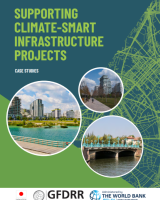
Supporting Climate-Smart Infrastructure Projects – Case Studies
This publication presents six case studies—three international and three from Turkey—showcasing climate-smart infrastructure projects that promote green and resilient urban development. These case studies were selected from an extensive list to support the World Bank’s lending initiatives in Turkish cities, aiming to illustrate effective approaches to sustainable urban infrastructure. The publication outlines the key lessons from these examples, categorizing success factors into ‘Policy and Finance,’ ‘Planning and Design,’ and ‘Processes and Partnerships.’ Each section addresses critical aspects of successful project
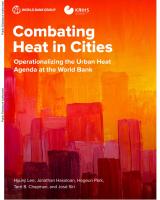
Combating Heat in Cities: Operationalizing the Urban Heat Agenda at the World Bank
This report stems from growing concern about the threat of extreme heat in urban settings and its adverse impacts on health. The team made use of the TIP—that is, the targeted, integrated, and prepared—framework, introduced in the recent "Healthy Cities" report (Lee et al. 2023), to help World Bank task teams explore pathways toward urban heat investments. This study gathered city responses and investigated existing World Bank initiatives to gain an understanding of what had already been done and the
All Knowledge resources
Explore the GPSC’s constantly growing library of knowledge resources, curated from cities across the world.
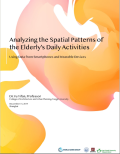
Analyzing the Spatial Patterns of the Elderly's Daily Activities
The living environment is an important resource for Chinese cities to response the challenge of aging population. In an ideal
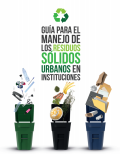
Guide for the Management of Urban Solid Waste in Institutions (Spanish)
This report guides the actions within these, with the aim of incorporating the concept of management and the best practices
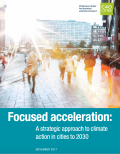
Focused Acceleration: A Strategic Approach to Climate Action in Cities to 2030
This report made in collaboration with the McKinsey Center for Business and Environment analyzes the biggest opportunities for cities to
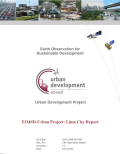
EO4SD-Urban Project: Lima City Report
GPSC is providing cities with urban extent imagery to facilitate a finer-grained understanding of urban expansion. This GPSC knowledge product
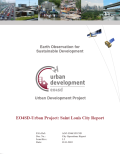
EO4SD-Urban Project: Saint Louis City Report
GPSC is providing cities with urban extent imagery to facilitate a finer-grained understanding of urban expansion. This GPSC knowledge product
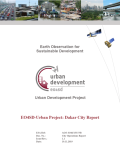
EO4SD-Urban Project: Dakar City Report
GPSC is providing cities with urban extent imagery to facilitate a finer-grained understanding of urban expansion. This GPSC knowledge product
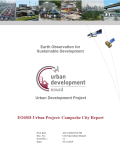
EO4SD-Urban Project: Campeche City Report
GPSC is providing cities with urban extent imagery to facilitate a finer-grained understanding of urban expansion. This GPSC knowledge product
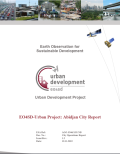
EO4SD-Urban Project: Abidjan City Report
GPSC is providing cities with urban extent imagery to facilitate a finer-grained understanding of urban expansion. This GPSC knowledge product

Her Home - Housing Finance for Women
IFC conducted a market study of housing finance for women in three countries where cultural, institutional, and policy barriers to


